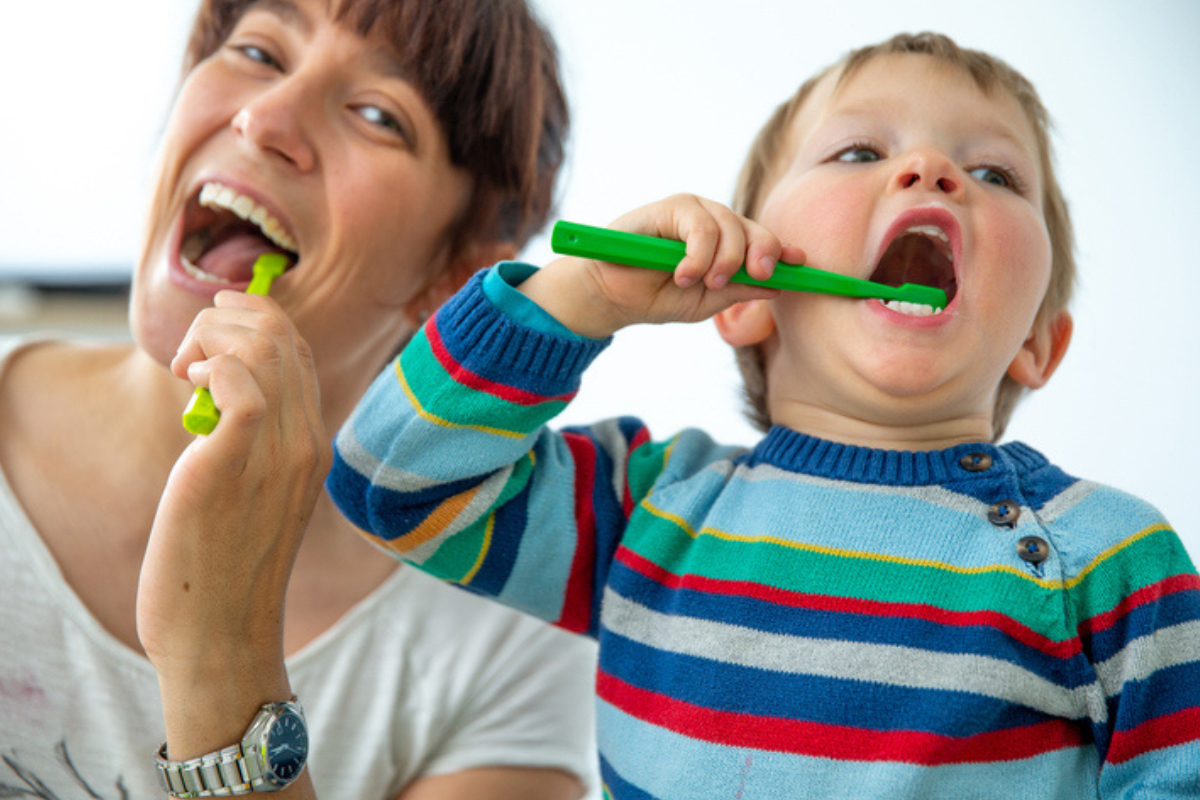How to Treat Gingivitis at Home
 posted
by Dr. Beau Beecher, DDS on 4/25/2024
in
General
posted
by Dr. Beau Beecher, DDS on 4/25/2024
in
General
If your gums are inflamed, sensitive, or bleeding, you may be suffering from gingivitis. But what is gingivitis, and how can it be prevented and treated at home?
What is Gingivitis?
Even people who regularly brush and floss their teeth are vulnerable to gingivitis, especially if they are not using proper brushing technique. If your gums are red, tender, swollen, or bleeding, gingivitis is the most likely cause. Gingivitis is an early form of gum disease. If left untreated, it can lead to periodontitis. This is a serious condition that can destroy the bone that supports your teeth, and lead to other health issues.
What Causes Gingivitis?
Gingivitis is caused by the buildup of plaque deposits on your teeth. Plaque is a sticky residue that forms on your teeth. It’s made up of food particles, bacteria, and mucus that build up over time both above and below your gum line. In the initial stages, the buildup of this residue causes inflammation of your gums. Certain people are more at risk of gingivitis, including those who are pregnant or have specific immune disorders, uncontrolled diabetes, misaligned teeth, or have poorly cleaned mouth appliances like dentures, braces, or crowns.
Can Gingivitis Go Away On Its Own?
While mild cases of gingivitis can be treated at home by practicing good oral hygiene, most cases will not go away without intervention. To determine how severe your case is and explore your treatment options, it’s important to schedule an appointment with a dentist as soon as possible to determine the severity of your condition.
How Long Will It Take for Gingivitis to Go Away?
Each case of gingivitis is unique in its cause and severity. However, mild cases can be treated at home with regular brushing and flossing. If you follow this routine daily, you may begin to see a resolution in your condition in 10-14 days. For more severe cases, or for those who wish to speed up this process, a dental professional may be able to offer additional treatments or techniques to shorten the recovery period.
How to Treat Gingivitis at Home
To treat gingivitis at home, you will want to brush your teeth at least twice a day: in the morning and again at night. While regular toothpaste is recommended, there are also types of toothpaste specifically designed to treat gingivitis. Look for “antigingivitis” toothpastes. Or, for a specific brand recommendation, consult your dental professional.
Practice Proper Brushing Technique
Your gums will likely be sensitive, so make sure to use a soft-bristled brush. Pay close attention to your brushing technique and ensure you are tilting the toothbrush at a 45-degree angle against the gumline before gently moving the brush back and forth with short strokes. Remember to be gentle. Overaggressive brushing can further inflame sensitive teeth and gums.
After brushing your teeth, floss between each tooth using dental floss, an interdental brush, or a water flosser.
Should I Brush My Gums If I Have Gingivitis?
You should brush your gums if you have gingivitis. Brushing along the gumline and on the gums will stimulate your gum tissues while removing gumline plaque. Remember to be gentle. Overaggressive brushing can further irritate and inflame sensitive teeth and gums. Abrasive brushing on your gums can also lead to gum recession, a condition where the gums pull away from the teeth and expose the root of the tooth. Exposing the root of the tooth can lead to more problems down the road.
Rinse With Mouthwash
After brushing and flossing, consider rinsing your mouth with mouthwash. This can flush out and keep harmful bacteria and plaque away from your gums. When treating gingivitis you will want to look for a mouthwash that has antiseptic properties. These mouth rinses contain alcohol, which helps bacteria linked to gum inflammation. Take the recommended amount of mouthwash into your mouth, swish it thoroughly for at least 20 seconds, and then spit it out. For best results, avoid eating or drinking anything for 30 minutes after completing your twice-daily oral hygiene routine.
Discuss Gingivitis Treatments With a Kimball & Beecher Dentist
With these tips, you may be able to successfully prevent or even treat mild cases of gingivitis at home. However, if your condition does not improve, or is far advanced, speak to a knowledgeable Kimball & Beecher dentist. We will diagnose and create a treatment plan for you. Don’t suffer in silence. Schedule an appointment online today or contact us at one of our locations.